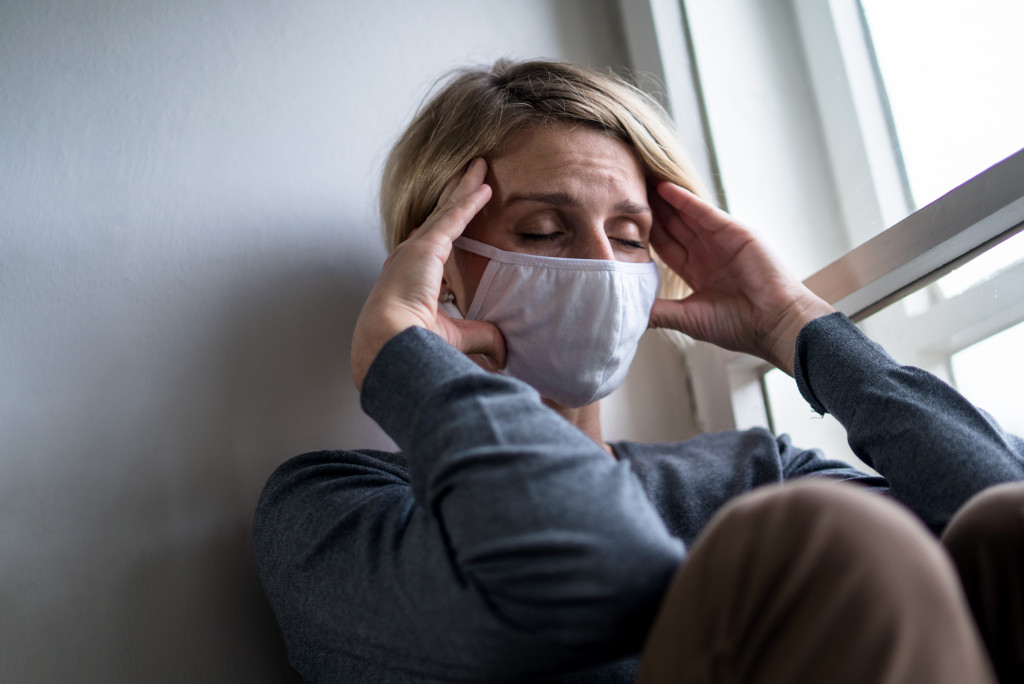- Isolate yourself when you test positive for COVID while wearing a mask and practicing good hygiene.
- Monitor your symptoms daily and seek medical attention if severe symptoms develop.
- Follow your doctor’s advice, such as staying hydrated, getting enough rest, exercising regularly, and eating a healthy diet.
- Seek support from family and friends or join online groups for people who have recovered from COVID-19.
The world has been living with COVID-19 for several years, and it seems it is here to stay. With the emergence of new variants and the possibility of another wave hitting the public, knowing how to deal with COVID once you are infected is essential. According to the Centers for Disease Control and Prevention (CDC), it is important to remain vigilant and take precautions even now that many people are vaccinated. This blog will discuss the steps to manage COVID and stay safe.
1. Isolate Yourself

The first thing you need to do once you test positive for COVID is to isolate yourself. This means you must avoid other people, including your family and friends. You should also avoid going to work, school, or public places. Try to stay in a separate room and have your meals separately. You must isolate yourself for at least ten days or until your symptoms improve.
When isolating, wear a mask and keep the windows in your room open to reduce your risk of infecting other people inside the home. Be sure to practice good hygiene, such as washing your hands regularly and disinfecting any surfaces you touch. This can help reduce your chances of spreading the virus.
2. Monitor Your Symptoms
Monitoring your symptoms daily is essential, especially if you have underlying health conditions. If you experience severe symptoms, such as difficulty breathing or chest pain, seek medical attention immediately. You should also take your temperature daily and check for any changes in your body, such as cough, sore throat, or loss of taste or smell. Keep track of your symptoms to inform your doctor when you consult them.
You should also continue doing this even after recovering from the virus. Some people experience persistent symptoms that may last for months after the initial infection. This is called “long COVID syndrome,” and it is important to continue monitoring the signs to ensure you are getting the appropriate follow-up care. You can contact your local health provider for a long COVID treatment program to help manage your symptoms and monitor your progress.
3. Follow the Doctor’s Advice
If you test positive for COVID, you should consult your doctor to get advice on managing your condition. Depending on your symptoms, your doctor may recommend medication, rest, or other treatment options. You should follow their advice religiously and take any prescribed medication as directed. This will help you to recover from COVID and avoid any complications. Here are some advice that your doctor may give you:
a. Stay hydrated
Drinking plenty of fluids helps to thin mucus and reduce congestion. It also allows you to stay alert and energized, essential for recovery. A good rule of thumb is to drink at least 2 liters of water or other fluids such as broth and dextrose solution daily.
b. Get enough rest
Resting helps to improve your body’s ability to fight infection. Try to get at least 7-8 hours of sleep every night and take naps during the day if possible. Catching up on rest can help you to recover faster and reduce your risk of further complications. If you feel tired, take a break and rest.
c. Exercise regularly
Exercise helps to improve your overall health and can help with stress relief. It also enhances your body’s natural immunity, which can help you fight off the virus quicker. Avoid strenuous exercise in the first 10 days of getting infected, and slowly return to your routine after recovery.
d. Eat a healthy diet

Eating a healthy diet can help to boost your immune system. Focus on eating whole foods such as fresh fruits and vegetables, healthy proteins, and complex carbohydrates. Avoid sugar and processed foods, as these can weaken your immune system.
4. Seek Support
Having a support system during your recovery is essential. It can help to reduce stress and provide emotional support. Contact family and friends for emotional support and talk to a mental health professional if needed. You can also join an online or social media group for people who have recovered from COVID. These groups provide a supportive space to share experiences and tips on how to cope with the virus.
COVID-19 is still a significant threat, but knowing how to manage it can help you stay safe. If you test positive for COVID, remember to isolate yourself, monitor your symptoms, follow your doctor’s advice, and seek support. Taking these steps can help you stay safe and recover quicker. With the right precautions and support, the world can beat COVID.
